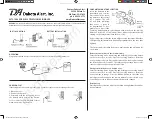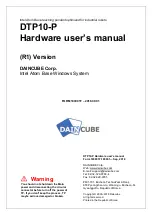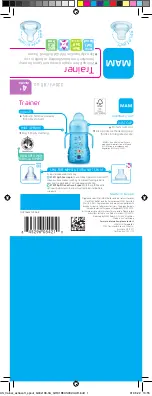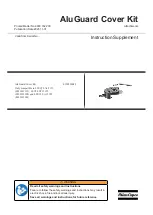
o
Moreover, by making the load-receiving surface of the
top plate curved, the affects of unbalanced loads, for
example, can be reduced, enabling accurate measurements.
o
Refer to the following illustration as an example of use
when considering top and bottom plates.
Example of jig for TC-XR(T)20KN-G6 and TC-XR(T)50KN-G6
TC-XR
m6
∅56
∅56
30
30
P.C.D.44
P.C.D.44
4 × Ø5.5 through,
Ø9.5 counterbore,
15 depth
Curved load-receiving
surface
Surface for contacting load
cell ground to a maximum
parallelism tolerance of 0.01
Load distributed evenly
across entire load cell surface
4 × Ø5.5 through,
Ø9.5 counterbore, 15 depth
Jig boss depth of 8
Tolerance through product
center hole is H7 JIS
Dimensions in millimeters (mm)
TEDS overview
TEDS (Transducer Electronic Data Sheet) is a memory chip
that can electronically read and write sensor-specific data.
The TEDS built into this unit has serial number, load cell rated
output and manufacturer name data recorded on it. By
connecting an indicator that supports TEDS, the TEDS data
of the connected load cell will be automatically read and
equivalent input calibration will be completed. (For details,
read the operation manual of the connected indicator.)
Refer to the connection diagrams in “Electrical connection
of load cell with built-in TEDS” as well as the operation
manual for the indicator being connected for procedures
to make connections.
TEAC indicators that support TEDS include the TD-01 Portable,
TD-700T, TD-260T, TD-275T and TD-280T. For details, inquire
at a shop that handles these products.
If not using the TEDS function, do not connect the orange
and green load cell cores.
Moreover, take measures to prevent the orange and green
cores from touching other terminals.
Data recorded in TEDS are tested values from calibration
conducted at room temperature during inspection before
shipping from our company.
Load cell output will be affected by the environmental
temperature where used, even when within the compen-
sated temperature range established in the specifications.
Although load cell output is calculated from the calibration
value saved in TEDS, when the environmental temperature
differs greatly from room temperature, the temperature
impacts increase on the zero point and the output. For
this reason, consideration of the effect on output voltage
is necessary. Output voltage changes will be within the
specification range as long as the unit is used at tempera-
tures within the specification range.
When using the TEDS function
This product’s cores for TEDS (orange and green) are
protected by a plastic cover as shown in the illustration.
This is to prevent miswiring and contact with other connec-
tors during use, for example, which could cause shorting.
To use the TEDS function, remove the tip of the plastic cover,
following the perforations, from the end of the cables. Then,
connect the TEDS cores (orange and green) to the indicator.
Refer to “Electrical connection of load cell with built-in TEDS”
for how to connect each wire.
Cores for sensor
Load cell cable
Protective plastic
Perforations
Cores for TEDS
(orange and green)
When not using the TEDS function
If not using the TEDS function, remove the entire protective
plastic cover and cut off the TEDS cores (orange and green)
around where the plastic cover was attached to the cable.
If you use it without removing these cores, do not remove
the protective plastic or make other arrangements to prevent
the cores from touching other places.
Refer to “Electrical connection of load cell with built-in TEDS”
for how to connect each wire.
Note about the tag attached to the TEDS
cable
Since the protective plastic and tag are not suitable for
the entire temperature range of this unit’s specifications,
do not expose them to high temperatures.
Handling after use
o
When moving this unit while it is installed, take protective
measures to prevent it from being shaken or subjected
to excessive external forces.
o
When storing it, keep it in a dry place where it will not
be exposed to water or oil, for example.
Specifications
TC-XR(T)
Model
Capacity A B C D E F Weight
TC-XR(T)20KN-G6 20 kN
62 56 35 1 44 18 0.8 kg
TC-XR(T)50KN-G6 50 kN
62 56 35 1 44 18 0.8 kg
TC-XR(T)100KN-G6 100 kN 62 56 40 1 44 18 0.9 kg
TC-XR(T)200KN-G6 200 kN 86 78 50 2 60 20 2.0 kg
TC-XR(T)300KN-G6 300 kN 100 90 70 2 70 20 4.0 kg
Safe overload rating: 120% R.C.
Rated output: 1 mV/V ±1%
Linearity: 0.5% R.O.
Hysteresis: 0.5% R.O.
Repeatability: 0.1% R.O.
Safe excitation voltage: 15 V
Input terminal resistance: 700 Ω ±7 Ω
Output terminal resistance: 700 Ω ±7 Ω
Insulation resistance: 2000 MΩ or higher (DC 50 V)
Compensated temperature range: 0 to 60°C
Permissible temperature range: −10 to 80°C
Temperature effect on zero balance: ±0.5% R.O./10°C
Temperature effect on output: ±0.5% R.C./10°C
Cable: Ø6mm 6-core shielded, 3m direct connection with
bare lead wires
Material: nickel chromium molybdenum steel
Other: TEDS built into sensor, compliant with RoHS (10 substances)
TC-KR(T)
Model
Capacity A B C D E F Weight
TC-KR(T)5KN-G6 5 kN
40 35 50 1 24 10 0.3 kg
TC-KR(T)10KN-G6 10 kN 62 55 70 2 44 18 0.95 kg
TC-KR(T)20KN-G6 20 kN 62 55 70 2 44 18 1.0 kg
TC-KR(T)30KN-G6 30kN 62 55 70 2 44 18 1.0 kg
TC-KR(T)50KN-G6 50 kN 62 55 70 2 44 18 1.0 kg
TC-KR(T)100KN-G6 100 kN 62 55 80 2 44 18 1.0 kg
TC-KR(T)200KN-G6 200 kN 88 88 100 2 60 20 1.3 kg
TC-KR(T)300KN-G6 300 kN 100 90 120 2 70 20 2.9 kg
Safe overload rating: 120% R.C.
Rated output: 1 mV/V ±1%
Linearity: 0.5% R.O.
Hysteresis: 0.5% R.O.
Repeatability: 0.1% R.O.
Safe excitation voltage: 18 V
Input terminal resistance: 700 Ω ±7 Ω (350 Ω ±3.5 Ω for 5KN)
Output terminal resistance: 700 Ω ±7 Ω (350 Ω ±3.5 Ω for 5KN)
Insulation resistance: 2000 MΩ or higher (DC 50 V)
Compensated temperature range: −10 to 70°C
Permissible temperature range: −20 to 100°C
Temperature effect on zero balance: ±0.1% R.O./10°C
Temperature effect on output: ±0.1% R.C./10°C
Cable: Ø6mm 6-core shielded, 3m direct connection with
bare lead wires
Material: nickel chromium molybdenum steel
Other: TEDS built into sensor, compliant with RoHS (10 substances)
Warranty explanation
o
The warranty period for this device is one year from
the date of purchase.
o
Be aware that repairs will require payment in the following
cases even during the warranty period.
1) Malfunction or damage due to misuse
2) Malfunction or damage caused by modifications or
repairs conducted by any party other than our com-
pany or a service person designated by our company
3) Malfunction or damage caused by dropping, trans-
portation or similar handling after product delivery
4) Malfunction or damage caused by fire, earthquake,
water, lightning or other natural disaster
5) Malfunction or damage caused by external factors,
including power supplies and equipment environ-
mental conditions, that deviate from the operation
requirements of this product
6) Malfunction or damage if the product was not pur-
chased from our company or an agent designated
by our company
o
We offer paid service after the conclusion of the warranty
period. For details, please contact the retailer where you
purchased the unit.
o
Be aware that our company will bear no responsibility
for any secondary damages resulting from the operation
of this device or related to data.
o
Information is given about products in this manual
only for the purpose of example and does not indicate
any guarantees against infringements of third-party
intellectual property rights and other rights related to
them. TEAC Corporation will bear no responsibility for
infringements on third-party intellectual property rights
or their occurrence because of the use of these products.
Contact information
TEAC CORPORATION (Manufacturer)
1-47 Ochiai, Tama-shi, Tokyo 206-8530 Japan
Phone: +81-042-356-9154
TEAC AMERICA, INC.
10410 Pioneer Blvd. Suite #1, Santa Fe Springs, California 90670,
U.S.A.
Phone: +1-323-726-0303
TEAC EUROPE GmbH. (EU Importer)
Bahnstrasse 12, 65205 Wiesbaden-Erbenheim, Germany
Phone: +49-611-7158-349
0120 MA-3021A




















